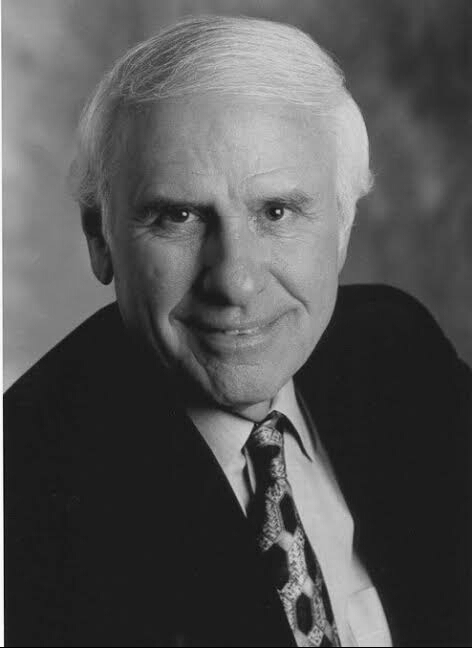Public speaking is an important skill that can open doors in personal and professional fields. Whether you’re delivering a presentation at work, giving a speech at a wedding, or participating in a community event, the ability to speak confidently in front of an audience can make a significant impact. However, the thought of public speaking often evokes anxiety and fear in many people.

The good news is that anyone can expand their confidence and excel in public speaking with the right strategies and mindset. This article will analyze the relationship between public speaking and confidence, providing practical tips for beginners and advanced speakers to boost their self-assurance and improve their public speaking skills. Public speaking helps convey your message effectively, enhances your personal brand, and builds credibility.
Whether you’re pitching an idea to potential investors, leading a team meeting, or sharing your expertise at a conference, the ability to speak confidently can significantly influence your audience’s perception and response. Moreover, developing public speaking skills can boost your overall communication abilities, making you more persuasive and influential in various aspects of life. In this article, we will dig into practical strategies to overwhelm the fear of public speaking and build the confidence necessary to become a compelling speaker.
Understanding the Fear of Public Speaking

One of the most typical phobias is glossophobia, the fear of public speaking. It derives from the fear of being judged, making mistakes, or failing to convey the intended message effectively. This fear can be revealed in physical symptoms like sweating, trembling, and increased heart rate, making it challenging to speak confidently.
Recognizing that this fear is a common response is the first step toward overcoming it. Many successful public speakers started with the same fear but turned it into a strength through practice and perseverance. When addressing an audience, the fear of public speaking often starts with negative experiences or societal pressures that create a heightened sense of vulnerability.
Action Item
Prepare thoroughly and visualize yourself speaking confidently to help reduce anxiety and boost self-assurance.
This anxiety can be compounded by unrealistic expectations, such as believing that one must be perfect or possess innate charisma to succeed in public speaking. However, understanding that even experienced speakers face nerves and that making mistakes is part of the learning process can be liberating. By reframing public speaking as an opportunity for growth rather than a threat, individuals can manage their anxiety and build the resilience needed to become confident and effective communicators.
The Importance of Confidence in Public Speaking

Confidence is a key factor in effective public speaking. Confidence makes you more likely to engage your audience, disclose your message clearly, and leave a lasting impression. Confidence allows you to be more expressive, use appropriate body language, and easily handle unexpected situations.
Moreover, a confident speaker exudes credibility and authority, making persuading and influencing the audience easier. Building confidence in public speaking is a process that takes time, but with consistent effort and practice, it can be achieved. Confidence in public speaking also helps reduce the likelihood of nervous habits, such as fidgeting or stumbling over words, which can distract the audience and undermine your message.

It enables you to focus on the content and delivery of your speech rather than on your anxieties. Additionally, confidence can enhance your ability to connect with the audience, making you more authentic and approachable. By cultivating confidence, you improve your public speaking skills and overall communication abilities, making you more effective in various aspects of your personal and professional life.
Embrace Preparation

One of the most important steps in becoming a confident public speaker is thorough preparation. When you are well-prepared, your confidence naturally increases. Start by understanding your topic inside and out. Research thoroughly, gather your thoughts, and organize them logically.
Create an outline to guide your speech, ensuring a clear introduction, body, and conclusion. Practice your speech multiple times, preferably in front of a mirror or with a small audience of friends or family. The more mundane you are with your material, the more confident you will feel when delivering it.
Pro Tip
Confidence grows with experience, so seek opportunities to speak in front of others, no matter how small, to build your skills over time.
In addition to knowing your material, familiarize yourself with the setting and tools you’ll use. Visit the venue beforehand and get comfortable with any equipment, such as microphones or presentation software. This can help reduce surprises on the day of your speech.
Consider potential questions or challenges from your audience and prepare responses in advance. By anticipating these aspects, you can handle these aspects more confidently during your presentation. Thorough preparation boosts your confidence and enables you to handle unforeseen circumstances more efficiently, ensuring a smooth and effective delivery.
Know Your Audience
Understanding your audience is important for effective public speaking. Knowing who you are speaking to allows you to tailor your message to their interests, level of knowledge, and expectations. Are they experts in the field, or do they have a basic understanding?
What are their needs and concerns? Tailoring your speech to your audience makes it more relevant and engaging for them. Additionally, connecting with your audience personally can help reduce nervousness and boost your confidence. Engage with your audience through eye contact, ask questions, and encourage participation to create a more interactive and enjoyable experience.
Utilize Relaxation Techniques

Managing anxiety is essential for building confidence in public speaking. Incorporate relaxation techniques into your preparation routine to help calm your nerves. Deep breathing exercises can help decrease tension and promote relaxation.
Visualization is another powerful tool—imagine yourself delivering a fruitful speech and receiving positive feedback from the audience. Positive self-talk can also boost your confidence; remind yourself of your strengths and past successes. Daily practice of these methods can help you stay calm and focused during your speech, making it easier to project confidence.
Action Item
Stand tall, take a deep breath, and focus on delivering your message with steady eye contact to exude confidence.
Body Language and Voice Control
Your body language and voice play a significant role in conveying confidence. Preserve good posture by standing tall with your shoulders back. Use gestures to indicate key points, but avoid excessive or distracting movements.
Establish eye contact with your congregation to build a connection and show engagement. Your voice should be clear and robust—practice varying your pitch, tone, and volume to keep your congregation interested and emphasize important points. Avoid speaking too quickly; a steady pace lets you articulate your thoughts clearly and allows the audience to absorb your message.
Handling Mistakes Gracefully

Even the most experienced speakers make mistakes. The key is to handle them gracefully and not let them undermine your confidence. If you lose your place or make an error, take a deep breath and calmly correct yourself.
A brief pause can give you a moment to collect your thoughts. Remember, the audience is often more forgiving than you might think—they understand that mistakes happen and are more interested in the overall message than perfection. By staying composed and moving forward, you demonstrate resilience and maintain your credibility.
Seek Feedback and Reflect
Continuous improvement is essential for building confidence in public speaking. Seek feedback from trusted friends, family, or colleagues who can provide constructive criticism. Focus on areas where you can improve and acknowledge your strengths and progress.
After each speaking engagement, reflect on what went well and what could be better. Keeping a journal of your experiences and wisdom can help you pursue your growth and identify patterns. Embrace each opportunity to speak as a learning experience and strive for continuous development.

Join Public Speaking Groups
Joining public speaking groups or clubs, such as Toastmasters, can provide valuable practice and support. These groups offer a safe and supportive setting where you can practice speaking skills, receive feedback, and learn from others.
Being part of a community of like-minded individuals with the same goal of improving their public speaking can boost your confidence and motivation. Additionally, participating in group activities and exercises can help you become more comfortable speaking in front of others and enhance your overall communication skills.
Pro Tip
Confidence in public speaking comes from preparation, so know your material well and trust in your ability to share it effectively.
Adopt a Growth Mindset
Cultivating a growth mindset is crucial for building confidence in public speaking. Understand that becoming a confident speaker is a journey that involves continuous learning and improvement. Embrace challenges and consider them as opportunities for growth rather than obstacles.
Be patient with yourself and celebrate your progress, no matter how small. Remember that confidence is built over time through consistent effort and practice. Adopting a growth mindset allows you to stay determined and resilient, even when faced with difficulty.
Conclusion

Public speaking and confidence are closely intertwined. While the fear of public speaking is common, it is a skill that can be developed with the right strategies and mindset. By embracing preparation, understanding your audience, utilizing relaxation techniques, and practicing regularly, you can build the confidence needed to excel in public speaking.






